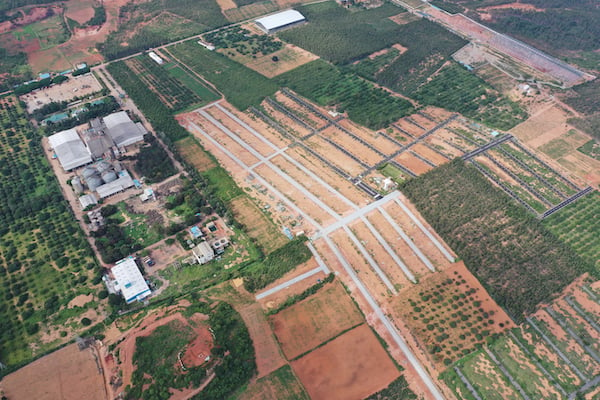The Importance of a Geotechnical Survey & Soil Study for Your Real Estate Development
So, you’ve just bought a piece of land, or you’re ready to start due diligence on a site before breaking ground, but where do you start?
The real estate development process is complex and involves several successive and contingent tasks that compound in scope as a project progresses. For instance, before you can begin construction, you need a level site, and before you level a site, you need all municipal permits and approvals.
A geotechnical survey is the first step in that long line of tasks - a soil study intends to better understand the composition of a lot's soils. And although it may seem like a trivial exercise in the grand scheme of an entire development project, a geotechnical survey serves as the literal and figurative foundation for construction.
In this article, we'll dive into soil studies, discuss why they are essential, and explore the impact different kinds of soils can have on the viability of a real estate development project.
What is a geotechnical survey & soil study?
A geotechnical survey, also known as a soil study, is the high-level process of assessing a site’s soil and groundwater condition.
A geotechnical engineer usually conducts the soil study, who, along with any municipal guidelines, will ultimately determine the necessary scope for site investigation. Typical investigative measures include:
- Soil mapping and geologic mapping
- Soil and water sampling
- Surface and subsurface conditions assessment
If necessary, additional investigative work can include laboratory testing, geophysical exploration, and foundation design recommendations.
The results from a soil study will help better inform the real estate developer and civil engineer on the feasibility of the location for development.
The importance and impact of a soil study on your real estate development
Topographical surveys are essential to understand the possible site work needed to develop the land. They assess the visible physical characteristics and delineate major terrain features – which help inform the civil engineering plan.
But that only answers the questions on the surface. For example, different kinds of soils contain different levels of density and varying physical properties. And typically, these differences aren't readily observable on the surface – subsurface exploration is required to determine the true nature of the soils.
Most clearly, a geotechnical survey is critical to determine whether the ground can support foundations and any buildings - it’s necessary for the protection of both life and property. But supporting a building is just the start because what lies below the surface can impact a project’s budget and any underlying development financial analysis.
For instance, some soils contain lots of rock or ledge. If a soil study determines you must blast to clear rock for a foundation, that would incur significant additional costs and could substantially impact a project’s development cost budget.
Or, what if you were building private well and septic single-family homes? Loamy soil best supports wastewater treatment, while well-balanced, medium density soil with a high water table best supports a well’s water yield and functionality. And if your project was contingent on a site being able to yield a density of 30 lots, but the soil only supports 15 septic tanks, the financial returns would be cut in half.
In some cases, the indication of "bad soil" may not be a project killer. Groundwater drainage solutions, deeper foundation footings, and trucking in engineered fill dirt can help solve soil problems. Your geotechnical and civil engineers can help craft the most practical and hopefully inexpensive solution for your project.
How does this all fit into your overall real estate strategy?
The processes of site selection and land acquisition, and ultimately predevelopment and development, require substantial investigative work to determine the feasibility of a project – and it’s all informed by your real estate strategy.
A real estate strategy assessment can help to refine your vision and outline feasible courses of action. It’s important to understand your business’s short and long-term growth prospects, the impact of real estate decisions on your balance sheet, and how the various types of commercial real estate transactions can impact your business’s top and bottom-line figures.
Let’s pretend that after a strategy deep dive, you determine ground-up development is the right solution for your business and personal goals. So, you go out, find a site large enough to accommodate your development, and hire an architect and civil engineer to begin mapping the area.
But it's your first time managing a real estate development, and you're busy running your business's day-to-day operations. So crucial due diligence steps fall through the cracks, you haven't identified soil issues, and you've spent a bunch of money on professional services. Then a geotechnical problem pops up.
The moral of the story? Wasted time and capital - you might even have to start from scratch.
Even if the best-laid plans don't "survive first contact," the process and strategy of planning are essential. Because tasks compound, dollars and time add up, and your business and real estate strategy rely on the successful execution of critical project milestones.



